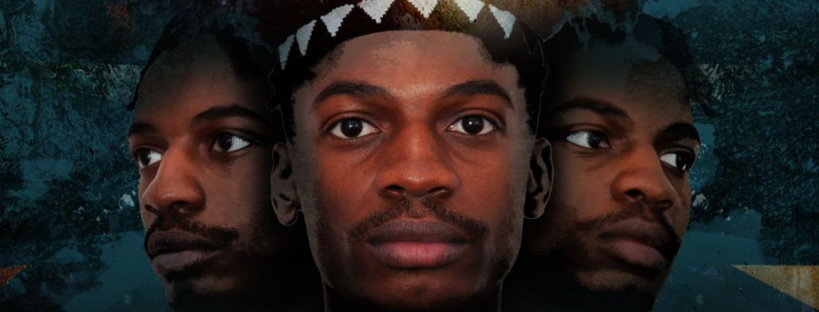Southampton MAST, October 21, 2022, TANGLE theatre group
Shakespeare wrote ten history plays centred on the English crown. Eight of them form an unbroken sequence, starting with Richard II and ending with Richard III (with three Henrys / six plays in between). Together, they chart the story of how Richard II’s overthrow by Henry Bolingbroke in 1399 triggers a familial struggle for power that lasts nearly a century. The War of the Roses is only concluded with Henry VII – and the house of Tudor – taking over in 1485.
The plot
It’s 1398 and Richard is arbitrating on a dispute between two nobles, his cousin Henry Bolingbroke (son of John of Gaunt) and Mowbray, Duke of Norfolk. Both accuse the other of treason. Richard agrees that the dispute be settled via a duel, but before it starts he intervenes – at the last minute – to instead banish them both. This demonstrates Richard’s character flaws – his indecisiveness, abruptness and arbitrariness – as Henry is banished for only 6 years while Mowbray is for life.
John of Gaunt, grieving the absence of his son, falls sick and laments the state the country has fallen into under Richard’s rule. This is when he utters one of the canon’s most quoted speeches “this England”, which is truly amazing:
“This royal throne of kings, this scepter’d isle,
This earth of majesty, this seat of Mars,
This other Eden, demi-paradise,
This fortress built by Nature for herself
Against infection and the hand of war,
This happy breed of men, this little world,
This precious stone set in the silver sea,
Which serves it in the office of a wall,
Or as a moat defensive to a house,
Against the envy of less happier lands,
This blessed plot, this earth, this realm, this England.”
[Aside – it’s interesting that this speech, which is often used in praise of England, is actually framed by Gaunt bemoaning the mess that the country is in rather than how amazing it is.]
Gaunt dies, and Richard takes the opportunity to seize his property to fund his war in Ireland, disinheriting Bolingbroke in the process. Richard’s behaviour gets ever more detestable, taxing poor commoners and fining nobles for their ancestors’ crimes. Richard heads to Ireland to command his “special military operations” there, and Bolingbroke uses the opportunity to mount a return to England. He initially appears to just want his land, but by getting on side the Duke of York (put in temporary charge by Richard) he sets his sights on becoming king, too.
Richard, on his return, has few allies to support him and has little choice than to accede the crown. He ends up in Pomfret castle, dishevelled and almost devoid of friends. Some more beautiful poetry, this time reflecting Richard’s pondering on whether he can conjure up an imaginary world to replace the one taken from him:
“I have been studying how I may compare
This prison where I live unto the world:
And for because the world is populous
And here is not a creature but myself,
I cannot do it; yet I’ll hammer it out.
My brain I’ll prove the female to my soul,
My soul the father; and these two beget
A generation of still-breeding thoughts,
And these same thoughts people this little world,
In humours like the people of this world,
For no thought is contented.”
There’s a failed plot led by another cousin, Aumerle, to reinstate Richard. An ambitious nobleman, Exton, interprets Henry’s concern of a “living fear” as an order to kill Richard. He does, and a guilty Henry (who apparently didn’t really want this to happen) vows to go on pilgrimage to Jerusalem in penance.
My still-breeding thoughts…
Richard II is one of my favourite plays, for several reasons. Firstly, it has some amazing poetry – why I couldn’t resist quoting reams of it above! Secondly, it triggers this huge mega-narrative of leadership, politics and power that spans nearly 100 years and sets the context for the following history plays. But I most enjoy the subtle characterisation, Richard’s complex and often competing emotions, his struggles with himself and his inability to reach contentment. It’s very believable. The play is listed as a history in the First Folio, but earlier quarto editions class it as a tragedy and you can see why – Richard’s fatal flaws are instrumental in his downfall.
I think for this reason, Richard II is a character that actors love to get their teeth into. I’ve seen three recorded versions – Fiona Shaw, David Tennant and Ben Whishaw – all brilliant. The version I saw this time was listed as an adaptation, but with one notable exception it largely stuck to the plot. In this production, Aumerle has a much bigger part and it’s he – not Exton – who kills Richard, potentially with a view to getting the crown himself (we are led to believe).
The play used only five actors, all very good, and drew on a South African township theatre style and a Zimbabwean score. It was a touring production, currently in Southampton. I loved the singing and music which brought a lot of tension. However, a bit like the adaptation of Henry V I watched in the rain, I felt that there wasn’t really enough of a link between the play and its setting to explain why it had been chosen. I didn’t really understand what it was trying to tell me or add, particularly. We were definitely still in the realm of mediaeval England, despite the set consisting mainly of ladders and LED lighting in a tiny performance space.

That said, it was another example of the strength of Shakespearean theatre production around the country that even without the bigger budgets of the RSC or NT, such a strong performance can be put on and enjoyed.
